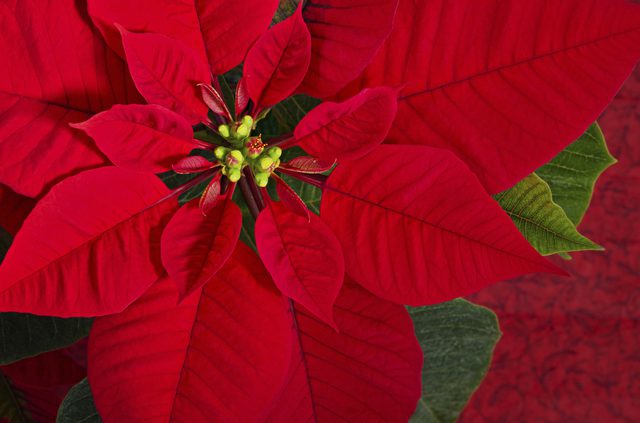Researchers debunk harmful poinsettias, cookie dough and other holiday season myths and misconceptions.
Poinsettias, those showy holiday plants with red and green foliage, are not nearly as harmful as a persistent myth says. Mild rashes from touching the plants or nausea from chewing or eating the leaves may occur but they aren’t deadly, for humans or their pets. Poinsettias belong to the same botanical family as rubber plants that produce latex, so some skin rashes occur in people allergic to latex. According to a Western Journal of Emergency Medicine research review, the plants’ toxic reputation “stems from a single unconfirmed death of a 2-year-old in Hawaii in 1919.”
Dr. Rachel Vreeman, an Indiana University pediatrician who has researched holiday myths, cited a study of more than 20,000 poison control center reports involving contact with poinsettias.
“In none of those cases were there deaths or serious injury. In fact, more than 95 percent of them required zero medical care,” she said.
The anglicized name comes from Joel Poinsett, a 19th-century U.S. diplomat who brought the plant back from Mexico.
The white stuff
To form snowflakes, moisture high in the atmosphere is frozen by clinging to particles that may include dust specks or soot. Add germs to that list. University of Florida microbiologist Brent Christner has found that bacteria commonly found on plants are surprisingly abundant ice “nucleators” present in snow from populated areas, barren mountain peaks and even Antarctica.
So is catching snowflakes on your tongue a bad idea?
“There’s a yuck factor,” Christner said. But it’s preferable to eating yellow snow.
He said the number of bacteria in snow would probably be about 100-fold less than in the same amount of bottled water.
Hair of the dog
Forget that Bloody Mary. If extra shots of bourbon in your eggnog have you feeling lousy the next day, drinking more alcohol — hair of the dog — won’t cure you.
Here’s what George Koob, director of the National Institute on Alcohol Abuse and Alcoholism, has to say about that:
“You are in a sense self-medicating a mild withdrawal syndrome by drinking more. The problem is, that’s going to wear off and you’re going to have an even worse hangover.”
Alcohol is dehydrating, so replenishing with lots of water or other non-alcoholic drinks can help relieve the symptoms. But experts emphasize that prevention is the healthiest cure.
Says Koob: “It all boils down to, don’t drink too much.”
So what about that saying, “hair of the dog?” According to an old folk remedy, a dog bite could be cured by putting the animal’s hair in the wound.
































